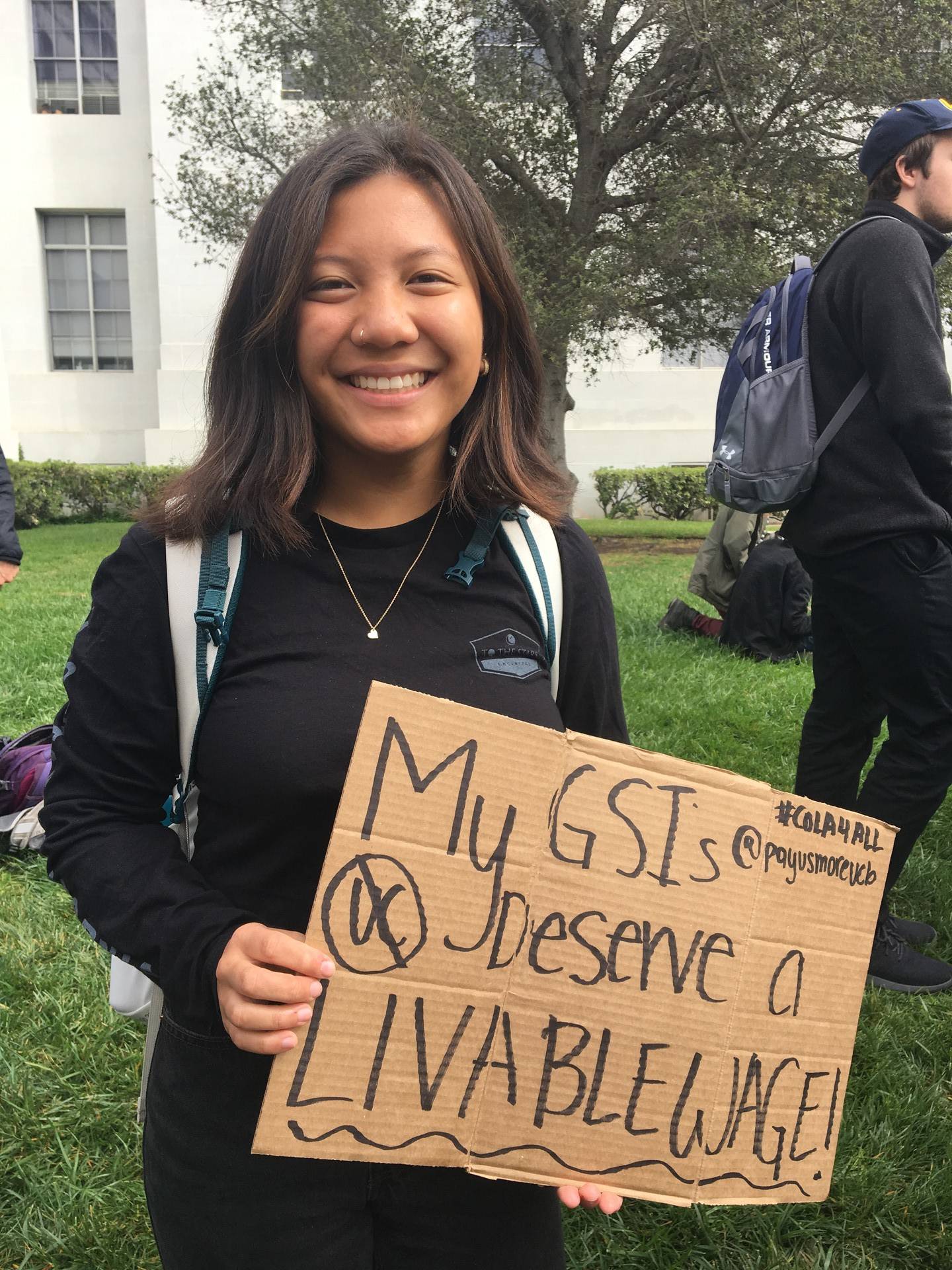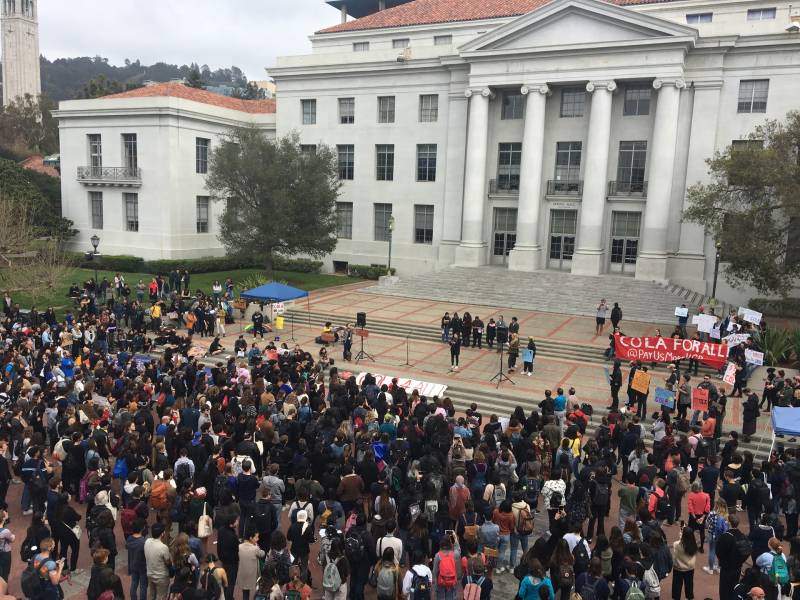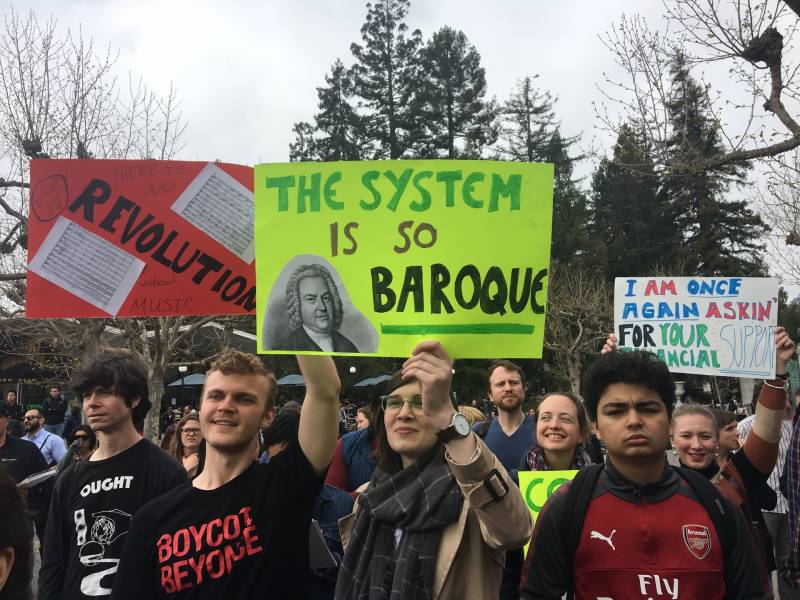Students across the University of California system are demanding the reinstatement of UC Santa Cruz graduate students who were fired last week after withholding grades as part of a campaign to demand better wages.
On Thursday, hundreds of students gathered at UC Berkeley’s Sproul Plaza to rally support for staging a strike of their own, while students at the other UC campuses held picket lines and rallies.
“Cops off campus! COLA in my bank account!” students chanted, referring to cost of living adjustments, as they listened to speeches by UC Berkeley student-workers and visiting students from UC Santa Cruz.
Graduate students at the departments of African American studies, ethnic studies and anthropology have declared themselves strike-ready. Once at least 10 departments across the UC Berkeley campus have signed on as strike-ready, many graduate students say they will meet to determine the next steps.
In early February, UC Santa Cruz students launched a wildcat strike, so-called because the union representing graduate student-workers across the many campuses has not yet voted to officially authorize a strike.
After 54 of the striking students were terminated on Feb. 28, representatives of their union said it had filed an unfair labor practice charge against the University of California. The union has also asked university officials to reopen negotiations on the contract, something the administration has previously said it would not do.
The bargaining team of UAW 2865, representing over 19,000 academic workers in the UC system, said in a March 3 statement that the union will hold an “Unfair Labor Practice Strike Authorization Vote” in early April. This could lead to a broader UC-wide strike.
For Jonathan Moore, a second-year doctoral student in the department of African American Studies, and many other students, it’s about the broader education system.
“The students at Santa Cruz have envisioned a long-haul transformation of the UC system that starts with ensuring that all graduate students are provided adequate wages to survive and to thrive in the absolutely appalling housing markets that so many UC’s are located in,” he said.
“It means a lot to me that graduate students in my department took it upon themselves to push the envelope here at Berkeley and respond to the demands of the students at Santa Cruz,” Moore said. “It is in alignment with our department’s history of demanding that the institution be held accountable, but also imagining beyond the confines of the university.”

Lucy Gill, a Ph.D. candidate in the department of anthropology, addressed the audience, saying, “The UC administration is in fact directly complicit in the exorbitant rent and gentrification within and beyond the Bay Area.”
Angela Castillo, an international student and fellow Ph.D. candidate in the department of anthropology, also addressed the crowd. She said she is ready to go on strike, but reminded attendees of the reason for the rally.
“We are standing here in solidarity with our colleagues at UC Santa Cruz, whose contracts on spring appointments were terminated by the UC,” Castillo said.


